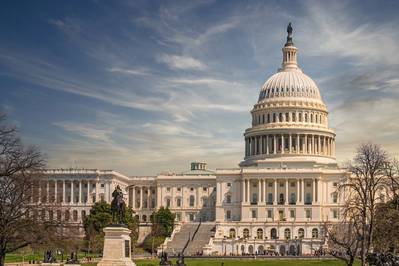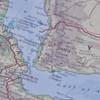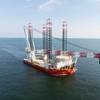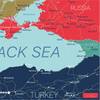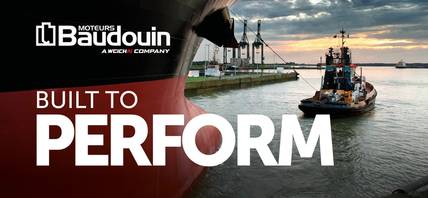Proposed Transfer of Regulatory Authority over Deepwater Ports from Coast Guard to MARAD is Ill-advised
On March 5, 2025, the United States Senate passed an important bill to authorize funding for our United States Coast Guard, after failing to do so in the previous Congress. S. 524, the Coast Guard Authorization Act of 2025, would if enacted into law authorize appropriations to fund the Coast Guard totaling $30.45 billion for fiscal years 2025 and 2026. The bill is sponsored by Senate Commerce, Science, and Transportation Committee Chairman Senator Ted Cruz (R-TX) and cosponsored by Senators Maria Cantwell (D-WA), Dan Sullivan (R-AK), and Tammy Baldwin (D-WI). It was approved by the Senate by unanimous consent and now awaits further action in the House of Representatives.
S. 524 is a relatively skinny bill by today’s standards, weighing in at a modest 437 pages (438 if you count the pro forma slip at the very end). In addition to authorizing congressional spending on the Coast Guard for the current and coming fiscal years, the legislation contains numerous provisions that would make changes and refinements to current law, including to the Coast Guard’s organic statute at Title 14, United States Code, federal shipping and navigation laws, and other related provisions of the U.S. Code and federal statutes at large.
One such provision is section 243 of the bill, innocuously titled “Clarification of authorities.”
- It would amend section 5 of the Deepwater Port Act of 1974 (33 U.S.C. 1504) (DPA) to take away general implementing rulemaking authority for the Act from the Coast Guard—the federal agency with 50 years of expertise in design, construction, operation, and environmental impacts of deepwater ports—and vest that authority instead in the Secretary of Transportation and DOT’s Maritime Administration (MARAD), which have no such expertise.
In particular, it would shift the “lead agency” role in reviewing deepwater port license applications for environmental impacts under the National Environmental Policy Act (NEPA) from the Coast Guard to MARAD. Within 18 months of enactment into law, the Coast Guard would be required to transfer much of its implementing regulations for the DPA license approval process to DOT. A saving clause in the legislation purports to retain responsibility in the Coast Guard for authorities pertaining to design, construction, equipment, and operation of deepwater ports and navigational safety. This transfer of authorities and roles from the Coast Guard to DOT and MARAD is ill-advised, for reasons I will explain.
First, a little background: the term “deepwater port” can easily mislead the uninitiated reader into thoughts of deep draft ports capable of accommodating the largest ocean-going vessels. But a deepwater port under the Deepwater Port Act of 1974 is instead a crude oil or natural gas terminal sited on an offshore platform at the end of a miles-long subsea pipeline. Deepwater ports make it possible to load crude oil and LNG from onshore facilities on the largest supertankers in a manner far safer, simpler, and environmentally sound than through lightering with smaller vessels.
For several decades, the only deepwater port in operation was the Louisiana Offshore Oil Port (LOOP) in the Gulf waters off the coast of Southeast Louisiana. A few others popped up over time, but they only were used for oil and gas imports to the United States, because imports were all the DPA allowed. In 2012, Congress amended the DPA to make exports possible, and as the United States became a net exporter of crude oil and LNG, deepwater port applications took off. According to the MARAD government website, as of March 26, 2025, 30 deepwater port license applications had been filed for approval, and eight licenses have been issued among 11 approved applications.
Currently, MARAD and Coast Guard split responsibilities for license application review based on longstanding delegations of authority by the Secretaries of Transportation and Homeland Security, respectively. The Coast Guard is, and has always served as, the lead agency for NEPA compliance review and been responsible for matters of deepwater port navigation safety, engineering and safety standards, operations, and inspections. MARAD is responsible for determining applicant financial capability and citizenship, preparing the project record of decision, and issuing or denying the license. While there has been frustration among some applicants in recent years with the slowness of the review process, I would argue that this current division and specialization of roles between Coast Guard and MARAD is an outgrowth of the agencies’ inherent, organic capabilities, and should be left as it is.
Coast Guard’s Office of Operating and Environmental Standards (CG-OES) and Office of Maritime and International Law, Environmental Law Division (CG-LMI-E), already have the breadth and depth of experience from 50 years of deepwater port work and the Coast Guard’s many other marine safety and marine environmental stewardship regulatory responsibilities to do the environmental, design, operations, and inspection work related to deepwater port licensing and operation. MARAD does not possess these competencies at all. Nor does MARAD have the resources—both human and financial—while the Coast Guard does. MARAD possesses the ability to review the finances of deepwater port license applicants, just as it does for port infrastructure and small shipyard grant applicants, Title XI vessel finance applicants, and others. MARAD has a well-developed capacity to make citizenship determinations, just as it does with vessel ownership questions such as fishing vessel ownership under the American Fisheries Act, or domestic ownership for purposes of participation in U.S. flag promotional programs like the Maritime Security Program.
With the dozens of deepwater port license applications that have been submitted to the federal government and more likely to come, now is not the time for Congress to change the well-established and complementary roles and responsibilities of the Coast Guard and MARAD. These proposed changes will only cause confusion and inefficiency, slowing and possibly even halting the processing of deepwater port license applications.
 About the Author: Jeff Lewis is a Member of Cozen O’Connor’s Transportation and Trade Group in Washington, DC. Jeff brings over 30 years of extensive experience representing and advising clients, members of Congress, and federal agencies on a wide range of legislative, regulatory, and policy matters. His clients benefit from his deep understanding of maritime and transportation law and policy, cultivated through senior leadership and advisory roles within the U.S. Department of Transportation, where he served as Chief Counsel of the Maritime Administration, and at both the U.S. Coast Guard and the U.S. Senate Committee on Commerce, Science, and Transportation, where he served as a senior attorney-advisor.
About the Author: Jeff Lewis is a Member of Cozen O’Connor’s Transportation and Trade Group in Washington, DC. Jeff brings over 30 years of extensive experience representing and advising clients, members of Congress, and federal agencies on a wide range of legislative, regulatory, and policy matters. His clients benefit from his deep understanding of maritime and transportation law and policy, cultivated through senior leadership and advisory roles within the U.S. Department of Transportation, where he served as Chief Counsel of the Maritime Administration, and at both the U.S. Coast Guard and the U.S. Senate Committee on Commerce, Science, and Transportation, where he served as a senior attorney-advisor.



